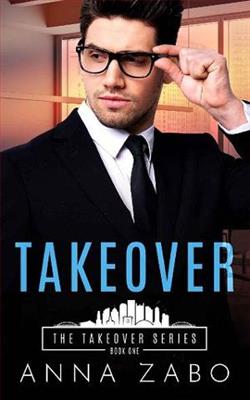Page 63 of State of Grace (First Family 2)
“Only when he thought I might make for a good chair.”
Trulo laughed at that before he made a futile attempt to curb his amusement.
“It’s okay to laugh. I thought it was funny, too.”
“Would you be on this task force with me?”
“In sort of a figurehead kind of way, like I am with the grief group.”
“Ah, I see how it is.”
“You do all the work. I get all the glory.”
They shared another laugh. “I’m happy to share the glory with you, my friend.” He stood to leave. “Take good care of yourself while you’re helping your husband care for others, especially in light of what you’re already dealing with.”
“I will,” she said, touched by his concern for her after the recent loss of her beloved father. “Thank you again.”
“See you later.”
Chapter Twelve
After Dr. Trulo left, Sam gathered her hair into a twist that she secured with a clip, grabbed a half-empty bottle of water and her notebook before joining her team in the conference room.
“I saw you were with Dr. Trulo, so I took the liberty of updating everyone on what we have so far,” Freddie said.
“Thank you. Unless anyone has a better idea, my plan is to see the sons’ football coach next. I have no idea if he’ll have anything to add, but we’ll check that box.”
“I’ve been thinking about it,” Cameron said, “and I keep coming back to how she was killed. There’re really only a few things that would spark the kind of emotions that would lead to that kind of murder—love, money, sex, power.”
“Very good thinking,” Sam said, impressed as always by the sharp young detective who’d joined them after Detective Arnold was murdered. “Let’s take them one by one.” They’d started a murder board for Pam, with photos of her in life and death, as well as a time line of what they knew so far. She went to the second dry-erase board and wrote the words love, money, sex and power across the top.
“What do we have under love?” she asked.
“Her family,” Jeannie said. “Her friends. Her business. Her community.”
Sam made notes of each one of those things. “What else?”
“I can’t think of anything else we’ve learned about her that wouldn’t be covered by one of those things,” Freddie said.
“How about money?”
“We ran the financials for both her and Bob,” Cam said. “We found nothing out of the ordinary. An upper-middle-class existence with the usual bills and expenses that come with having three children, one of them in college in Boston. There were no unusual deposits or withdrawals in the last six months.”
“I checked her business accounts,” Jeannie said. “The business made about three hundred thousand last year and was on track for a bigger year this year. According to the testimonials on her website, she was the best at what she did, and a wide variety of organizations relied on her to provide flawless events for their members and stakeholders.”
“Next is sex. What stands out?”
“She was happily married,” Freddie said. “Everyone we talked to mentioned how solid she and Bob were as a couple and all of them were as a family. Nothing like the vibe we picked up right away that something was rotten when we were investigating Ginny McLeod’s murder.”
“True,” Sam said. “That family was in a class by itself.” She pointed to the final column on the dry-erase board. “We’re left with power.”
“I haven’t picked up a sense that either she or Bob were power hungry,” Freddie said. “They seemed like the types to keep to themselves and their kids and the people closest to them.”
“One thing to consider,” Cameron said. “The sons are elite football players. Freddie said Lucas is on track for a scholarship with a D-1 college program. That’s big time. We might want to do some digging into the dynamics of his football situation.”
“That’s a thread,” Sam said.
“I’d suggest speaking to each of the kids individually,” Jeannie said. “Sometimes teenagers pick up on tensions or arguments or things that they’d keep to themselves unless asked directly.”















